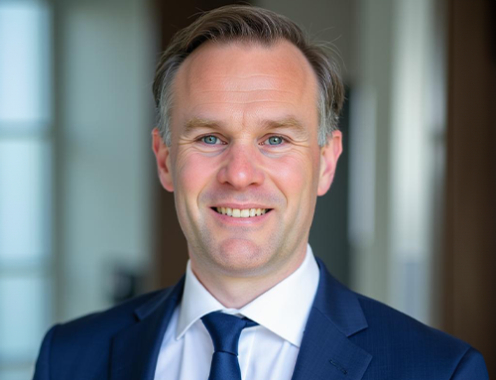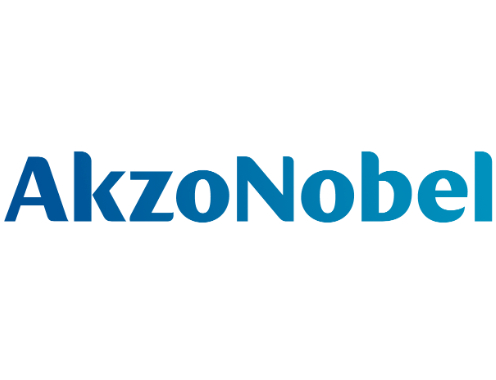Emiel Jongerius - Group Controller at AkzoNobel


Emiel Jongerius is the Group Controller at AkzoNobel, with over 20 years of diverse international experience and broad functional expertise.
Speaking to Hannah Mallia, Emiel shares the challenges and successful outcomes of leading a major global Finance transformation, the growing importance of becoming a true business partner, and his approach to building high-performing Finance teams.
As Group Controller, how do you balance the strategic and operational aspects of Finance leadership to ensure both long-term growth and day-to-day efficiency?
I believe the role of a Group Controller is increasingly about being a strategic business partner, whose mandate is Finance but is focused on value creation. The ask is becoming broader and broader.
Foremost, I think the key approach as a Group Controller is to support and work with the business to identify growth opportunities, such as margin expansion, exploring new markets, potential mergers and acquisitions, developing innovative financing solutions, and defining together how to get there. That is now the key driver and ask of a Group Controller as a strategic business partner.
I emphasize the importance of having the right capabilities to collaborate closely with the business, understand market dynamics, and speak the language of customers to help teams become successful. To enable this strategic focus, I rely on having a strong Finance team that can manage day-to-day operations, which frees me to concentrate on strategic initiatives. That requires a clear vision for the Finance function, to rally your troops behind your thoughts and place that dot on the horizon of where you want to go.
In this digital era, I talk about the digital agenda. I actively communicate about digital possibilities in Finance, discussing how we can leverage data, artificial intelligence, and robotic process automation. By sharing this vision, I aim to engage teams, gain feedback, create enthusiasm, and attract talent interested in driving the digital agenda. People need to know where you want to go; invite them to think with you and be part of that journey.
At the end of the day, that will help you balance your long-term strategic vision and the day-to-day operations as a Group Controller.
How do you see the Finance function and the role of the Finance Business Partner evolving in the future?
I see the Finance function expanding far beyond traditional financial responsibilities. Finance professionals are now being asked to take on broader accountabilities, including supporting strategic leadership, technology integrations, and collaborating with key stakeholders both internally and externally.
We must also keep a keen eye on global politics and understand how these dynamics influence risk management within our organizations. This means dynamically incorporating external factors into financial planning and understanding the ultimate impact on the company's financial health. Becoming a true business partner and having that connection with the business is becoming increasingly important, focusing on understanding organizational dynamics and finding ways to help teams become successful.
Drawing from personal experience, I learned the importance of this approach while working in a smaller Sales organization in Automotive Lighting North America [at Philips Lighting]. In that entrepreneurial environment, I simultaneously managed Finance, Customer Service, Logistics, and Procurement. That experience opened my eyes so much and taught me to make fast decisions, always think with the customer in mind, and focus on value creation for the business. I can only recommend such experiences in an entrepreneurial environment to others.
What is your approach to building high-performing Finance teams and fostering a culture of empowerment?
You can have a good vision or a good view, but without people you cannot make it happen.
People spend more time at work than with their family daily, so we need to create an engaging environment where people would like to work.
My approach centers on building teams with a strategic mix of experienced professionals (those who know what good looks like, and where they want to go), and younger talent (those in the early phases of their career, who can really grow and develop), which enables knowledge transfer and unlocks creativity. At AkzoNobel, we have also established an early career program, to support fresh graduates in learning various Finance aspects.
From an empowerment point of view, it’s important to agree as a team on our deliverables and where my leaders want to be in two to three years. I then provide them with freedom and accountability to define how they want to achieve those objectives. With that space, they can bring people together to look at best-in-class examples. I can also support them, challenge them, and coach them, but to realize the outcomes is up to the people.
To help people grow, I believe the fastest way is pushing people out of their comfort zone and giving them new opportunities and challenges. When I approach people with new roles and they doubt their capabilities, that’s the time to tell them you believe in them. By surprising them with unexpected roles, that’s when you see an acceleration in their personal and professional development. Witnessing their growth and seeing them achieve things they thought impossible gives me a kick and fulfilment as a leader.
I often put people in roles they hadn't initially considered, such as moving someone from Accounting to Treasury or into a leadership position they hadn't anticipated or experienced before. Later, these individuals come back and express that it was a good decision. They appreciate how the unexpected role made them think differently and expanded their scope of learning and professional experience.
Can you provide an example of a Finance transformation that you have led, what challenges you faced, and how you overcame them?
I led a major global Finance transformation at AkzoNobel that impacted the entire Finance community on a global scale. The transformation involved two key strategic moves: first, transitioning from decentralized processes locally organized in countries to a centralized Finance organization run through five shared service centers globally.
Second, transforming the Finance organization from a backward-looking function to a forward-looking one that delivers more value to the business through insights and analytics.
The transformation presented several significant challenges. Stakeholder alignment and change management were key. I focused on engaging with people, listening to their concerns and taking them into account, keeping them informed, and creating buy-in from those teams through various communication methods like attending management meetings, creating newsletters, and making presentations.
Communication is key; be clear about what you want to achieve, how and why, and be open to feedback from the organization. You can only achieve a successful transformation together. Taking into account different perspectives can lead to different outcomes that work better for everyone.
Another major challenge was process standardization. Moving from local ways of working to a global approach required a clear vision and strong project management. When transitioning into shared service centers, everyone was completing processes in their own way, but we needed to move to global processes.
To do that, we implemented Central Finance, the latest SAP S/4HANA technologies, as a standard platform, which enabled us to further centralize global activities into shared service centers. This included creating global teams for specific functions, like product costing and fixed asset accounting, which ultimately improved financial quality and drove efficiency.
Can you share an example of where you’ve used advanced analytics to help identify key business opportunities?
I cannot overemphasize the importance of data and analytics in understanding business dynamics as a Finance professional. At AkzoNobel, we created a comprehensive financial information platform using Central Finance SAP S/4HANA, which captures 95% of our business transactional data in real-time.
If you really want to get into data analytics, you need that type of platform with reliable, almost real-time, data. From there, you can begin to ask questions and go into the details to understand how to support the business. That also requires specific team members with strong analytical skills and the ability to extract meaningful insights and draw conclusions.
By leveraging this real-time data, we achieved transparency on margins at customer and product levels, enabling us to collaborate with Pricing and Sales managers to identify opportunities for margin enhancement through strategic pricing or product adjustments. That’s very powerful.
In operational Finance and Credit Management, we gained global visibility into customer payment and invoicing behaviors. This allowed us to compare and analyze patterns across regions, customers, and channels, ultimately identifying process improvements that made it easier for customers to conduct business with AkzoNobel.
Another example, which is close to my heart, is we centralized management reporting by creating a single source of truth. Previously, different business units generated their own reports with varying truth definitions. Our new approach standardized reporting based on real-time data, reducing time spent on report creation and allowing focus on value-driving topics and discussions.
What is your favorite motto or quote and why?
It’s not a motto as such, but I tell my team to focus on making one small improvement per day, as that will create a big step over time, and I am a firm believer in continuous improvement. Making those small steps every day helps improve processes, ways of working, and collaboration within the business.
I see teams struggling with this, as they view change as a large mountain ahead of them. My message is to break it down into small, manageable steps. By dedicating just half an hour or an hour daily to improvements, you see significant progress over time. After a week, that's five hours of improvement, and after a month, it becomes 20 hours. I find this method particularly effective for me and it works for the team. By encouraging teams to make small daily changes, they can really make a change.
Thank you to Emiel for speaking to Hannah Mallia, Netherlands Country Director at EMEA Recruitment.
Views and opinions contained within our Executive Interviews are those of the interviewee and not views shared by EMEA Recruitment.






You can also use your social account to sign in. First you need to:
Accept Terms & Conditions And Privacy Policy